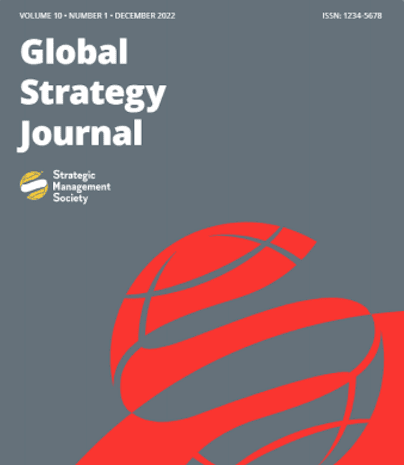by Shyam Kumar
Nearly 11% of large public firms in the United States are led by CEOs who are also their original founders. Give the sizeable proportion, not surprisingly, firms with founders as CEOs are also often acquisition targets. In fact, many founders see the acquisition of their firm by a larger, more reputable organization as a winning exit strategy. Yet, little is known about how these acquisitions perform — whether they do in fact create value, and the risks they pose for their acquirers.
In fact, many founders see the acquisition of their firm by a larger, more reputable organization as a winning exit strategy.
In our paper published in Strategic Entrepreneurship Journal, we explore this issue. In principle, the presence of a founder-CEO presents immense opportunities for acquirers. The human capital of founders is unique — not only do they know their firms extremely well, which can facilitate synergies, but they tend to be good at spotting opportunities and taking calculated risks. These entrepreneurial traits often help founder-led organizations respond more rapidly to environmental changes compared to firms with hired, professional CEOs. Consequently, founder-CEO-led target firms on average tend to enjoy higher valuations than their professional-CEO-led counterparts. We refer to this as the “Founder Firm Premium.”
But can acquirers successfully capitalize on this premium and benefit from the underlying entrepreneurial capabilities when they buy founder-CEO led firms? Therein lies the dilemma: acquirers must pay for these capabilities upfront with no guarantee that the founder-CEO will eventually stay after the acquisition. Hence is the value founders add to targets, and the associated Founder Firm Premium, a net benefit, given that the founder-CEO is likely to leave?
To study these questions, we utilize a sample of public US acquisitions drawn from a broad range of industrial sectors between 1997 to 2013. Next, using a switching regression model, we tease out the value attributable to founder CEOs in the target firm and estimate the Founder Firm Premium. We also separate this value from the non-founder value inherent in the target by decomposing Tobin’s Q into these two components. Our analyses of departure rates confirm that among targets in which founder CEOs contribute more value and the Founder Firm Premium is higher, founder-CEOs are indeed more likely to leave post-acquisition.
Further, we find that abnormal stock market reactions to acquisitions tend to be less positive where the Founder Firm Premium is high, indicating that stock prices incorporate the risks of departing founder-CEOs.
This does not necessarily mean acquisitions of founder-CEO firms destroy value and should be avoided. Founder-CEO firms tend to have valuable capabilities in other functional areas such as R&D and production. One of our key findings is that these non-founder resources can be an important source of performance benefits, and that value from these resources can indeed be captured by acquirers.
Additionally, our study highlights that acquirers should integrate founder-CEO targets and professional-CEO targets differently. Founder CEOs are more likely to be motivated by non-monetary incentives. Acquirers need to offer such incentives such as the freedom to continue to be entrepreneurial and take risks to retain these individuals. To integrate founder CEOs in the same manner as professional managers would potentially be a mistake, and a careful distinction needs to be made between the two types of human capital.
Method
A key challenge in our research was to estimate the value contributed by Founder CEOs to their firms, and the Founder Firm Premium. In our paper we do this by estimating the value of a Founder CEO target as if it were a professional CEO firm with similar observable characteristics using a switching regression model. Subsequently we take the difference between the observed value and the estimated counterfactual value to obtain the contribution of the Founder CEO.
Dependent variables: Value creation at the time of acquisition announcement, Founder departure
Authors of the academic publication “The Performance of Acquisitions of Founder CEO Firms: The Role of Founder Firm Premium“: Shyam Kumar, Nandu J. Nagarajan, Frederik P. Schlingemann
Link to the publication: https://onlinelibrary.wiley.com/doi/abs/10.1002/sej.1371




